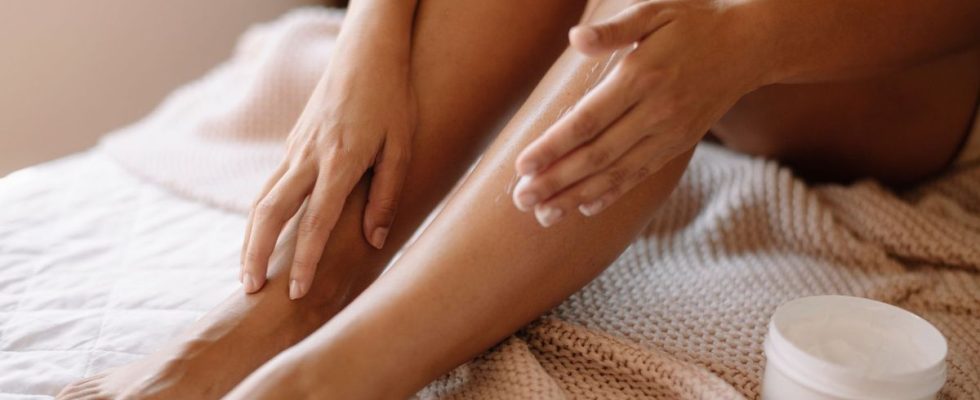Published on
Updated
Reading 2 min.
in collaboration with
Isabelle Gallay (dermatologist)
Moisturizing your skin remains an important gesture for both your health and your beauty. We asked Dr. Isabelle Gallay, dermatologist, to explain to us how to choose from all the existing ranges and which cream she trusts.
Moisturizing your skin after a shower or before going to bed is a gesture that is both comforting and cosmetic. But beyond this “soft” gesture, the hydration provided by a cream is important for the skin.
Why moisturize your skin every day?
Dr. Isabelle Gallay, dermatologist and vice-president of the National Union of Dermatologists, reminds us that using a moisturizing cream is a basic that helps protect our skin above all:
“Our skin has a hydrolipidic skin barrier which protects it from attacks. But every day we are confronted with what we call the exposome, that is to say everything in the environment which exposes us to attacks: the climate, pollution… Often with an alteration of this protection . Moisturizing your skin is therefore essential to strengthen this skin barrier, and the thinner and more fragile the skin is, the more it needs to be protected.”
What is a good moisturizer according to a dermatologist?
No more fancy, sparkly and overly complicated creams. For Dr Gallay, a good moisturizer must meet much simpler criteria:
“A good moisturizing cream is a cream that provides comfort above all, without causing any inconvenience. It must therefore be extremely tolerant. We choose it without endocrine disruptors, without allergenic preservatives. (you can use the Yuka application for this) and with natural moisturizing active ingredients (called natural moisturing factors) such as urea, water, or even lactic acid.
It is also better to opt for fragrance-free ranges for maximum tolerance. “unless it’s a light, evanescent scent that goes away after application. Some lipids may have a slight odor, which will therefore be covered by a very light perfume, but we avoid very odorous creams.
Finally, rich or light, it will depend on your skin type. “I recommend carrying out a skin diagnosis at least once, because few of us know our real skin type. However, it is this indication that will determine our need for hydration.”
What cream does our dermatologist recommend?
But then which cream can we choose with our eyes closed? Our dermatologist advises us.
“For my part, I like the ranges of creams which can offer several types under the same name: a rich cream, a light cream, and a balm, to be able to vary the needs from winter to summer, and according to the maturity of your skin “.
As such, our dermatologist admits to really liking laboratory creams. Universkinwhich are composed with biomimetic peptides, protein fragments which are not recognized as foreign by the skin and which do not contain preservatives.
“Cetaphil is also very good too, with its Cétaphil and Cétaphil restoraderm range for more damaged skin. “I regularly recommend it to my patients!”
With thousands of positive comments on Google, Cetaphil also seems to be the best-seller of the moment. Apply to your skin without moderation.

